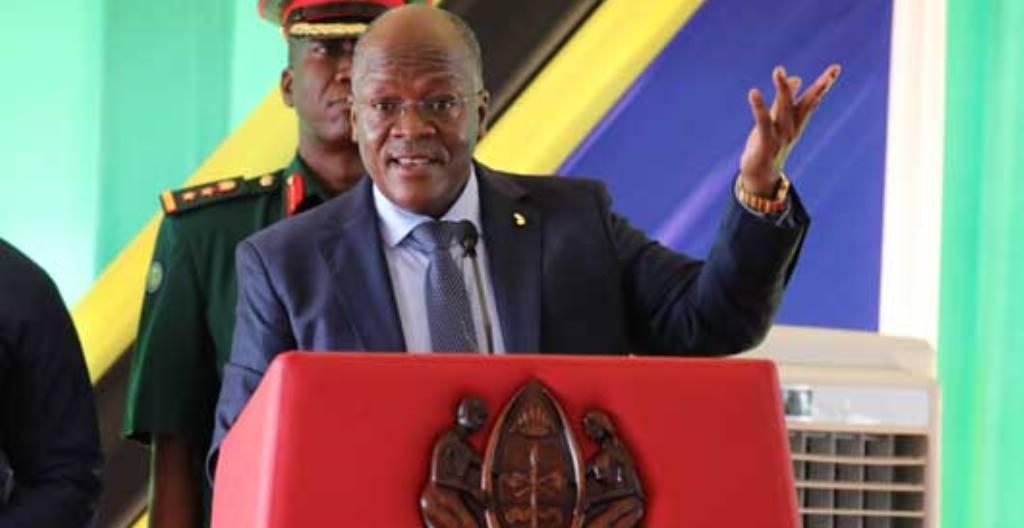Africa-Press – Tanzania. THE Legal and Human Rights Centre (LHRC) and other lawyers have applauded President John Magufuli for commuting death penalty on 256 convicts to life imprisonment on Tuesday.
The enthusiastic applause was expressed by lawyers yesterday, a day when the world marked an International Human Rights Day which is observed every December 10.
However, this is not the first time the President has made such a bold and humane decision. President Magufuli, some years back, declared in public that he will not sign a warrant for the execution of the death penalty on convicts.
Speaking to the ‘Daily News’ yesterday, LHRC Executive Director, Ms Anna Henga said the Centre as the leading human rights advocacy organization in the country is thrilled with the decision, taking into account that for years stakeholders have been pressing for the government to abolish the capital punishment.
According to Ms Henga, it is now the right time for the government through the respective ministry and the Parliament to amend the legislation on death penalty for the purpose of abolishing it. She asserted that the existence of the legislation to date is outdated and implementable.
Ms Henga insisted that the legislation hinders the promotion and protection of human rights particularly the right to life. Other lawyers fully supported the decision by President Magufuli, asserting that death penalty is unconstitutional.
Seasoned advocate Michael Ngalo, told the ‘Daily News’: “commuting the death penalties imposed on the 256 convicts is a clear sign the death penalty has outlived its purpose and thus overtaken by events.”
According to the advocate, the decision by the Head of State vindicated the calls by human rights activists and organizations to abolish death penalty, since it is not only unconstitutional but also against the current international human rights instruments most of which Tanzania has ratified.
Expounding further on the matter, Mr Ngalo recalled in early 1990s High Court Judge, the late James Mwalusanya, as he then was, delivered a landmark decision courageously declaring death penalty unconstitutional for being cruel, among others.
That decision, he said, was well researched in terms of analysis on the pros and cons of the death penalty and the position of other countries in relation to the punishment.
Unfortunately, the lawyer said, the decision was overturned by the Court of Appeal, holding that the penalty was constitutional and valid.
“So the position is that death penalty is still in our statutes despite the fact that it is not put in practice. I fully concur with the President’s reasoning on why he declined to endorse implementation of the death penalty on the 256 convicts,” he said.
He concluded by pleading with the Attorney General and the Human Rights Commission to propose and take initiatives to repeal the death penalty from the statute book and replace it with life imprisonment or long term imprisonment like 30 years.
Advocate Hudson Ndusyepo, shared similar views, referring to the case of Republic Vs. Mbushuu alias Dominic Mnyaroje and Kalai Sangula, (the Mbushuu’ case) where it found that the death penalty in Tanzania was unconstitutional.
Reasons given were that the way the sentence is executed (by hanging) violates the right to dignity of a person as protected under Article 13 (6) (d) of the Constitution of the United Republic of Tanzania and constitutes an inherently cruel, inhuman and degrading treatment outlawed by Article 13(6)(e).
Referring back to the case, the lawyer pointed out that Judge Mwalusanya had reasoned that ordering a convicted person to be executed by hanging to death is inhuman and degrading his or her personality.
The reasoning, he said, was fully adopted by the Republic of South Africa and put in her laws as a nation of no death penalty.
“The time has come for us to delete that punishment from our statutes as evidenced by the stated experience of all sitting Presidents who have never exercised the power of signing the instrument for execution of the death sentence from time to time,” he said.
Capt Ibrahim Bendera, another seasoned lawyer, pointed out that being an advocate who has defended several accused person on murder reiterated the calls by his co-members of the bar that death sentence be removed and replaced with 30 years or life imprisonment.
“If repentant behaviour is good, then 30 years is an appropriate sentence, but if behaviour is not good then life imprisonment can be imposed. The main reason is the inadequacy of forensic evidence. Several decided murder cases in USA have been revised after many years for inappropriate evidence,” he said.







